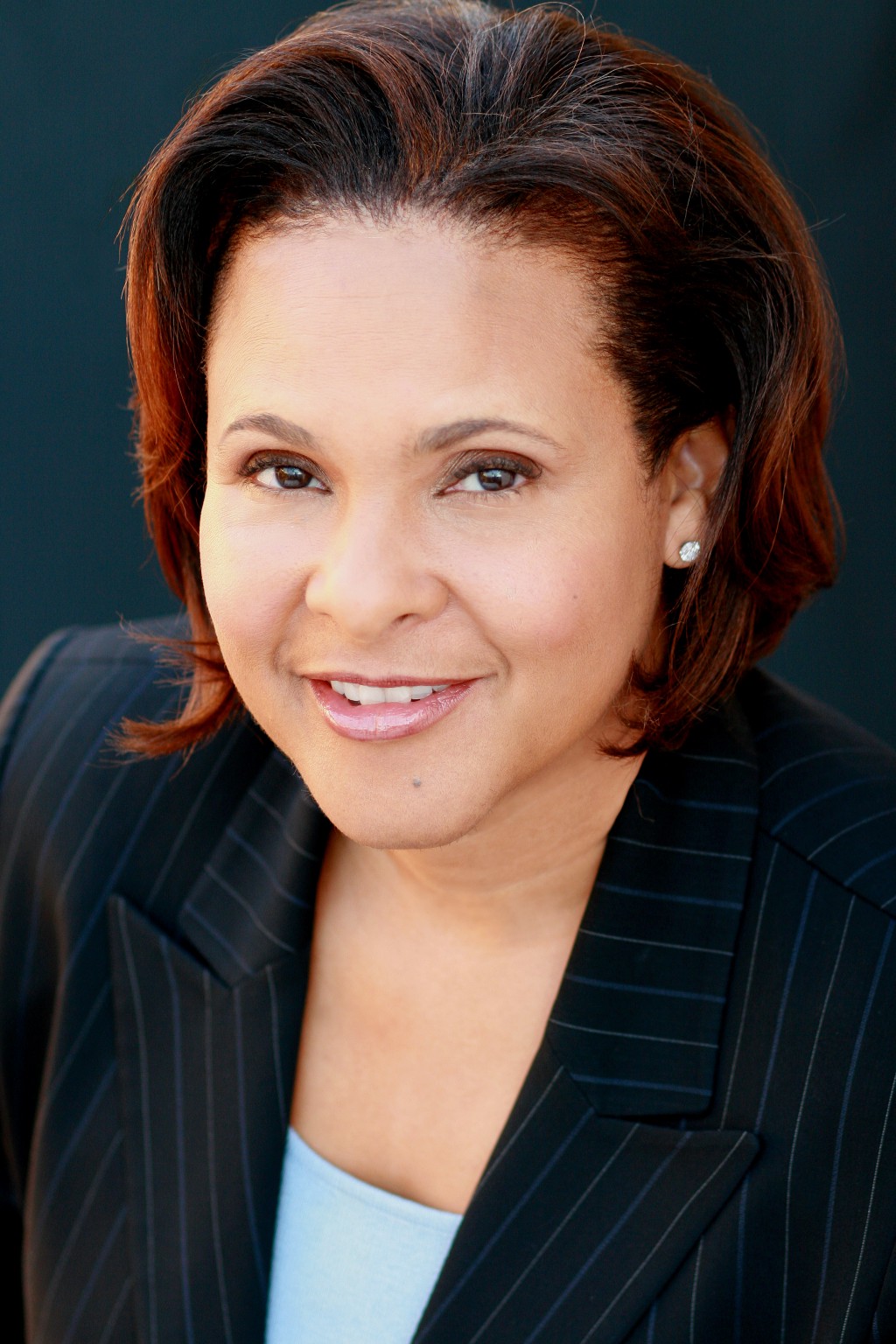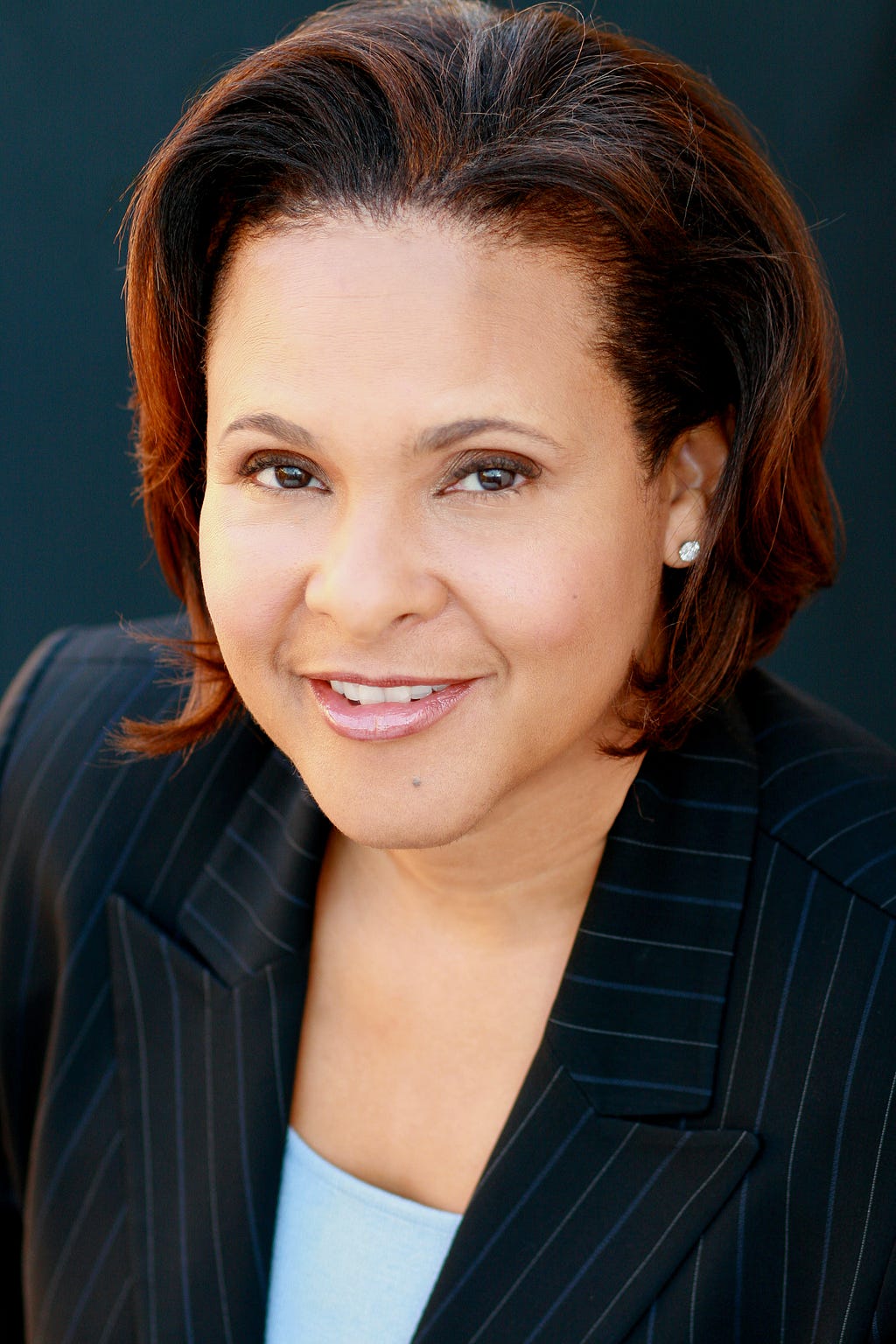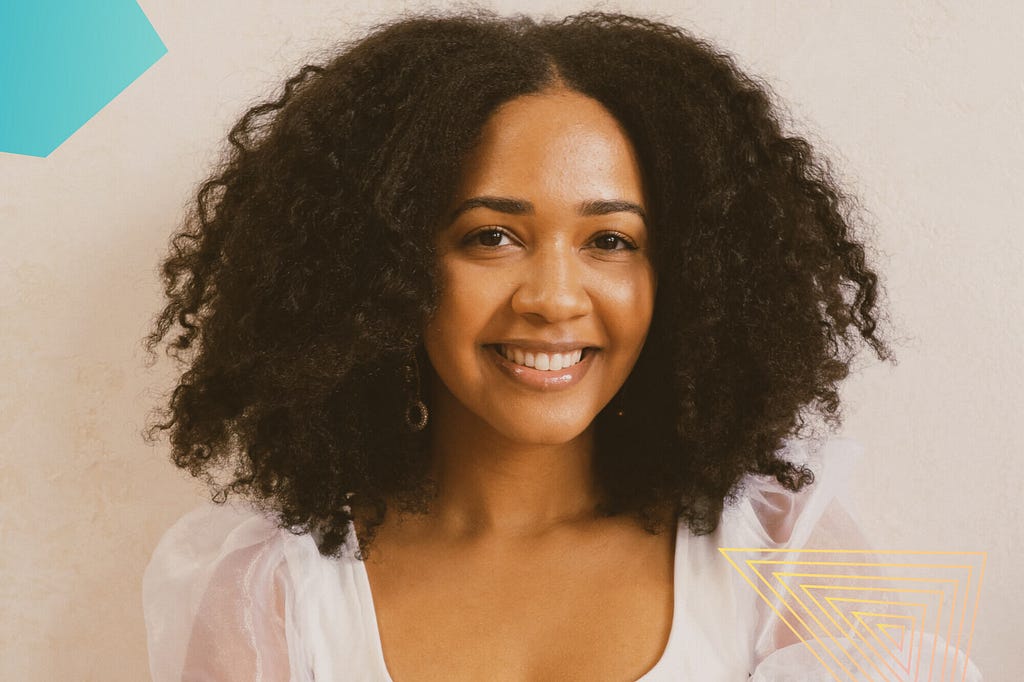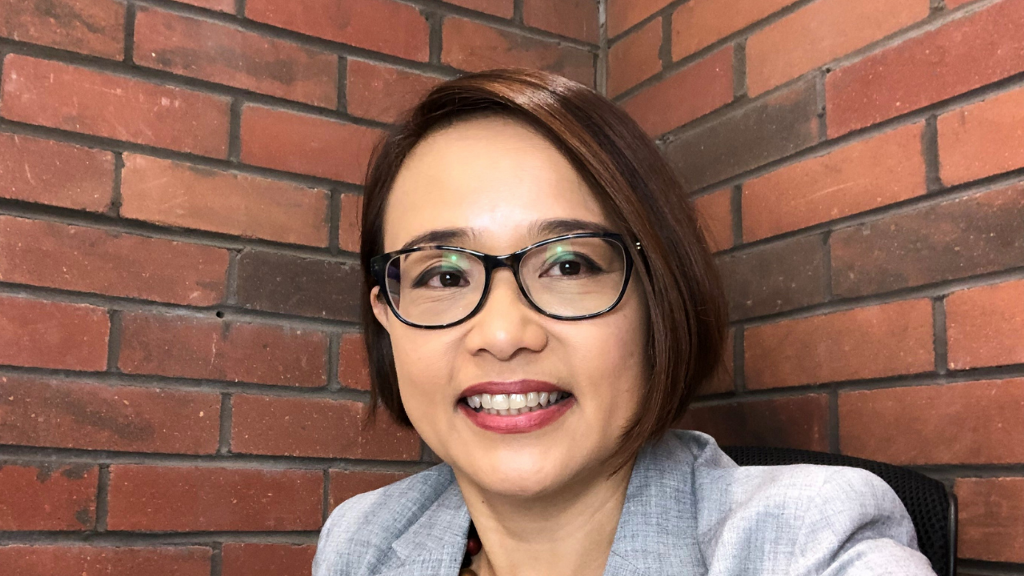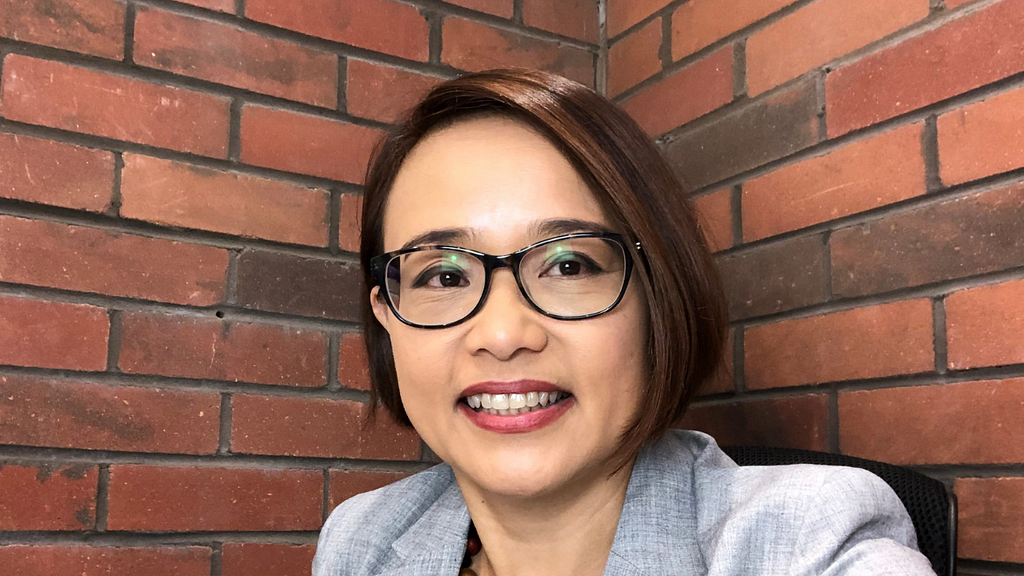Women Of The C-Suite: Jacqueline Fae of ‘I Deserve Love’ On The Five Things You Need To Succeed As A Senior Executive

The truth is we all have our own superpowers (what we’re really good at). Part of what makes humanity so great is that we all have different backgrounds and life experiences that inform our views. So, I think it’s important to have a team that can see things from many angles. I’ve found that diverse perspectives can lead to creative problem solving. Even in my marriage, my husband is Latino, and we are constantly learning from each other in subtle ways. Besides, in any evolving industry, why wouldn’t you want a team with a diverse range of backgrounds and superpowers?
As a part of our series about strong women leaders, we had the pleasure of interviewing Jacqueline Fae, The Faery Matchmaker, Founder of I Deserve Love, Author, Celebrity Matchmaker, Dating Coach, and Love Manifestation Expert.
Jacqueline Fae is former actress turned Celebrity Matchmaker, Dating Coach, and Love Manifestation expert. She had a successful career in acting but fell out of love with the industry. She pivoted and capitalized on her background in Psychology and intuitive ability to read and understand people, has given her a unique ability to successfully match people for long-term, successful, and fulfilling partnerships.
More than just a matchmaker, Jacqueline helps her clients to resolve toxic relational patterns, decode their own underlying values, and open up to the love they deserve.
Thank you so much for joining us in this interview series! Before we dig in, our readers would like to get to know you a bit more. Can you tell us a bit about your “backstory”? What led you to this particular career path?
After being a working actress for a decade, I just wasn’t feeling fulfilled and realized my heart was no longer in the craft of acting. At that point, I decided I truly wanted to do something to help people, so I studied and got certified in Hypnotherapy, NLP, and Life Coaching.
Eventually, a coaching client asked for my help with his online dating profile and our sessions quickly evolved into dating coaching. Within six months he was married and that’s when I realized I absolutely loved being able to give dating advice and more so, I enjoy helping people find a real love connection. I truly believe every one of us deserves love, but we often block ourselves from receiving it, which is why I started I Deserve Love Matchmaking.
Can you share the most interesting story that happened to you since you began leading your company?
Where do I even begin? I guess the search for love is so universal that it’s brought out some of the most interesting people I’ve ever met. As complex thinking creatures, we are shaped by our traumas and our breakthroughs. Our baggage can hold us back in so many ways that finding love can feel hopeless for people that are otherwise winning in career or financially. So, it’s been incredible to work with some of the most successful and truly fascinating people on the planet from Billionaires to Influencers, Athletes, and Boss Babe CEOs. It’s a real privilege to both teach and learn from these incredible people. You should see our VIP Match Club parties! When all those energies are together in a space, it’s something magical.
Can you share a story about the funniest mistake you made when you were first starting? Can you tell us what lesson you learned from that?
One of my favorite parts of being a Matchmaker is throwing members’ singles events we call Match Club Parties. My very first event was a Valentine’s Day party at a gorgeous home overlooking the Hollywood Hills. I figured most people wouldn’t show up, so I padded the guest list… way too much. To my surprise, most of the list showed up and even brought friends! I ended up having one hundred people at what I thought would be a thirty-person singles event. Naturally, we ran out of alcohol and I had to pay the owner of the house so we could drink his. As I tried to MC throughout the night, no one could hear me, because there were so many people. I learned to always have more alcohol and appetizers than you think they’ll need.
None of us are able to achieve success without some help along the way. Is there a particular person who you are grateful towards who helped get you to where you are? Can you share a story about that?
I definitely am grateful to my husband, Ramón who has been my biggest supporter since day one. Not only has he helped me build and strengthen my brand through content and marketing, but he believed in me and encouraged me to start my own business in the first place. I know it’s not easy for most men to feel good about their wife meeting dozens of successful, single male clients, but he has always trusted me 100%, which has not only made our business successful, but our relationship is as well. Secure is sexy!
In my work, I often talk about how to release and relieve stress. As a busy leader, what do you do to prepare your mind and body before a stressful or high stakes meeting, talk, or decision? Can you share a story or some examples?
I’m a huge advocate of meditation, so before I go into a meeting, I like to close my eyes, relax and do some deep breathing. Sometimes, I’ll even ask the Universe or take some time for self- care. It’s so important to listen to your body and answer it when it asks for something.
As you know, the United States is currently facing a very important self-reckoning about race, diversity, equality and inclusion. This may be obvious to you, but it will be helpful to spell this out. Can you articulate to our readers a few reasons why it is so important for a business or organization to have a diverse executive team?
The truth is we all have our own superpowers (what we’re really good at). Part of what makes humanity so great is that we all have different backgrounds and life experiences that inform our views. So, I think it’s important to have a team that can see things from many angles. I’ve found that diverse perspectives can lead to creative problem solving. Even in my marriage, my husband is Latino, and we are constantly learning from each other in subtle ways. Besides, in any evolving industry, why wouldn’t you want a team with a diverse range of backgrounds and superpowers?
As a business leader, can you please share a few steps we must take to truly create an inclusive, representative, and equitable society? Kindly share a story or example for each.
My husband likes to say that real voting power comes from how you spend your dollars. So, when we discuss all the levels of division and inequality in our current system, I think it all starts with simplicity.
Listening has become a great tool when attempting to help people find love.
Ok, thank you for that. Let’s now jump to the primary focus of our interview. Most of our readers — in fact, most people — think they have a pretty good idea of what a CEO or executive does. But in just a few words can you explain what an executive does that is different from the responsibilities of the other leaders?
There are many days when I feel like the pressure of navigating our company direction is less important than helping a client with a healing heart, but the truth is success comes when I can find a balance of both. As the decision maker on so many aspects, I’ve found that being able to trust your team is crucial to any real success. That means building confidence and identifying the right team members.
What are the “myths” that you would like to dispel about being a CEO or executive. Can you explain what you mean?
I don’t know if it’s still considered glamorous and comfy, but I can attest it isn’t. At least not at first. It can take months or years to be profitable and the first few years of the business. I think the myth I would dispel is that matchmaking is easy. It’s not! And the second myth I would dispel is that anyone can do it and they absolutely cannot. It takes a very unique spirit and a certain skill set to truly be great in this career. I think people don’t truly understand that being a matchmaker means that you need to understand the deepest parts of your client and help them to heal and work on themselves while you intuitively seek out another person that you can match to the person you are helping them to build themselves into. You have to be able to project and then time this perfectly.
In your opinion, what are the biggest challenges faced by women executives that aren’t typically faced by their male counterparts?
I can’t speak for everyone, but I’ve definitely come across men that won’t even negotiate with a woman. There are certainly some outdated patriarchal attitudes that are ripe for throwing out.
What is the most striking difference between your actual job and how you thought the job would be?
I think we all have different expectations going into a new role, but I really was tossed into this because of my innate abilities to read people. I think I was more surprised that I was destined for this role than anything else and I have to say that it’s been the most rewarding journey. I began my career as an actress and fell out of love with the industry. It just didn’t bring me happiness anymore. The Universe has a way of making sure we always end up where we are meant to when we trust in it. So, I ended up right where I was meant to, matchmaking. I have helped so many people find their soulmates and it’s been such an incredible experience. I think the biggest difference that I truly experienced was what I thought my career path would be and where I ended up. I am happy with where I am!
What advice would you give to other women leaders to help their team to thrive?
It’s honestly the same advice I’d give anyone, but the key is to ignore the doubts of others as you build your empire. There will always be people who want to knock down your sandcastles but keep on building and eventually that sand will crystalize.
How have you used your success to make the world a better place?
I’m in a fortunate position to have the freedom to do what I love. A central part of that is helping people unlock self-love and receive it from others, so I’d like to think in my own way, I’m improving it one person at a time.
What are your “5 Things I Wish Someone Told Me Before I Started” and why? (Please share a story or example for each.)
1. I wish someone would have told me how hard I would have to work. I will put in 12–14 hour days to really be successful in my industry.
2. I wish someone would have told me how much time you will spend on calls connecting, networking, meeting, negotiating.
3. I wish someone would have told me how picky and challenging it can be to work with people.
4. I wish someone would have told me how important persuasiveness is in business.
5. I wish someone would have told me how hard it is to stand out in an industry. Paving your own way takes risk, hard work, and persistence.
You are a person of great influence. If you could inspire a movement that would bring the most amount of good for the greatest number of people, what would that be? You never know what your idea can trigger.
I would inspire people to empower other people. It’s the most powerful thing and if you can genuinely tell someone something positive you can empower them.
Can you please give us your favorite “Life Lesson Quote”? Can you share how that was relevant to you in your life?
We are always learning and evolving, here on this earth school.
It’s relevant because it reminds me to control my emotions and treat everything like a lesson and this is true for all people. We all learn and evolve at different rates. Send love and light.
We are very blessed that some very prominent names in Business, VC funding, Sports, and Entertainment read this column. Is there a person in the world, or in the US with whom you would love to have a private breakfast or lunch with, and why? He or she might just see this if we tag them
I’d like to do a double date with Grant Cardone & his wife Elena Lyons with my husband Ramon. They are an inspiration as a power couple. I’d love to pick their brains and get to know them. I’m sure we’d have a great time and I’d benefit so much from their expertise.
Are you on social media? How can our readers follow you online?
Instagram: https://www.instagram.com/thefaerymatchmaker
Facebook: https://www.facebook.com/TheFaeryMatchmaker
LinkedIn: https://www.linkedin.com/in/thefaerymatchmaker/
Women Of The C-Suite: Jacqueline Fae of ‘I Deserve Love’ On The Five Things You Need To Succeed As… was originally published in Authority Magazine on Medium, where people are continuing the conversation by highlighting and responding to this story.



